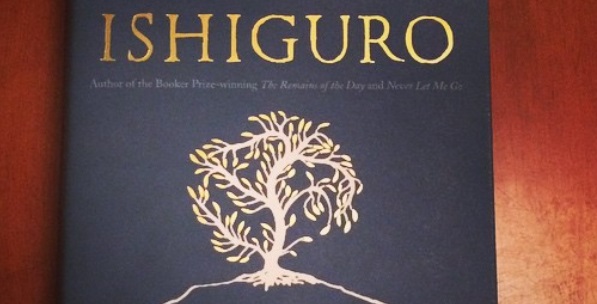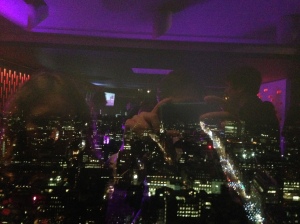On Tuesday I was very excited to get to hear one of my favourite authors in conversation. At the lovely Broadway Cinema in Nottingham Kazuo Ishiguro read from his new book (which I blogged about here on Monday) and talked about various things.
Ishiguro spoke about the fantasy / not fantasy pigeon-holing of his novel. He wanted to examine collective memory and how people seem to selectively forget things. He was inspired by atrocities in a few places, but didn’t want to set his novel there as it would become all about the events and not the way that people remember events. He spoke about how some politicians in America are trying to stop the history of slavery from being taught to school-children, as they weirdly believe that it doesn’t have any bearing on contemporary life in America. I found this departure interesting because Ishiguro has previously focused on interior memory, the ways that memory can play tricks on an individual. But he hasn’t before concentrated on what society as a whole tends to remember and forget.
I was intrigued about his thoughts on his writing process. He writes a very rough draft, not caring about grammar or the way the words flow, until he has a full length novel. He then polishes about 30 pages at a time so the ideas and characters make sense and the sentences sound good. He edits the whole thing in 30-page increments until he has a good draft of the novel, and then feels able to show people this. After Never Let Me Go was published, Ishiguro believed that he was well into an idea for a new novel. Sadly (or perhaps not), after showing her what he had written, his wife told him to get rid of all of it. She liked the ideas, which did eventually end up in The Buried Giant. And Ishiguro is now thankful that she did tell him to rewrite the entire thing (though wasn’t at the time).
I loved listening to Ishiguro talk. I liked that whilst the evening was focused on intelligent talk, there was a bit of lightness. A member of the audience had seen Ishiguro having breakfast with (the author) David Mitchell at a literary festival, and she wondered what sort of intellectual conversations they had been having. David Mitchell had been trying to convince Ishiguro of Peter Capaldi’s wonderousness in the new Dr Who, as Ishiguro had stopped watching it after Matt Smith left. I think that the best authors aren’t weighed down by the sense of their own importance.
And then the talk was over and we got our books signed. It was great, and I noticed that there was a good representation of younger and older people there. This made me happy.



You must be logged in to post a comment.